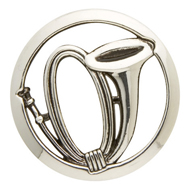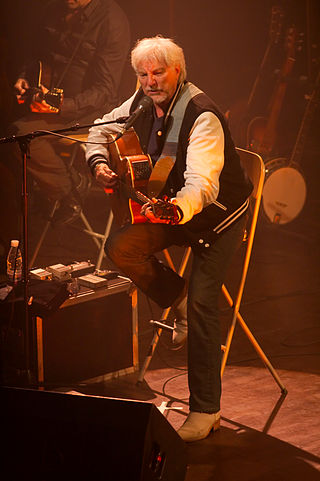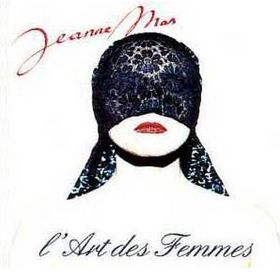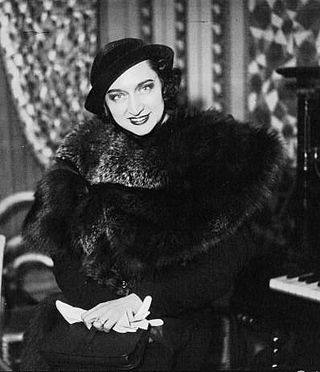
Marie-Josée Croze is a Canadian actress. She also holds French nationality, which she obtained in December 2012.

The chasseurs alpins are the elite mountain infantry force of the French Army. They are trained to operate in mountainous terrain and in urban warfare.

Hugues Jean Marie Auffray, better known as Hugues Aufray, is a French singer-songwriter and guitarist.

"Le Chant du départ" is a revolutionary and war song written by Étienne Méhul (music) and Marie-Joseph Chénier (words) in 1794. It was the official anthem of the French Empire, and it is currently the unofficial regional anthem of French Guiana and the presidential anthem of France.

Jeanne Mas is a French pop singer. She is well known in France, Switzerland, Canada and Belgium for a number of hit singles released in the 1980s. Her first success was "Toute première fois" in 1984. This song was simultaneously released in the United Kingdom in English. Two of her singles charted at number one in France: "Johnny, Johnny" and "En rouge et noir" in 1985 and 1986, respectively. Her 1980's albums are good examples of the Euro disco electropop style popular in Continental Europe at the time, featuring synthesizers and very catchy melodies.

Jeanne Mas is the eponymously titled debut album from French pop singer Jeanne Mas. The music is entirely written by Romano Musumarra who also worked with artists such as Elsa Lunghini and Princess Stephanie of Monaco, the album peaked at #5 for two months on the French Albums Chart and achieved Gold status.

Femmes d'aujourd'hui is the second studio album by Jeanne Mas, released in April 1986 by Pathé Marconi. Music for 8 of the 10 tracks was written by Romano Musumarra. The French singer Daniel Balavoine also participated in the production of the album. Charting from 3 May 1986, it peaked at #1 for two months on the French Albums Chart and spent 63 weeks in the top 30, most of them in the top ten. It was certified Platinum and remains Mas' most successful album to date in terms of sales and chart performance.

Les crises de l'âme is the third studio album by French pop singer Jeanne Mas, released in 1989.

L'art des femmes is the fourth studio album by French pop singer Jeanne Mas, released in 1990.

Pierre Braunberger was a French producer, executive producer, and actor.

Daniel Lévi was a French singer-songwriter, composer, and pianist.

La Forêt des Mal-Aimés is a 2006 studio album by Quebec, Canadian singer Pierre Lapointe being his second actual studio album after his Pierre Lapointe promotional limited edition album in 2002, but officially considered his debut official release on Audiogram records. By mid-June 2006, it had sold over 80,000 copies.

Paul Danblon was a Belgian composer, opera director and administrator, and journalist. He was one of the pioneers of scientific journalism on RTBF. In 1954, after graduating in chemistry from the Université Libre de Bruxelles, Danblon joined the RTBF current events programme, Carnets de l'Actualité. He went on to specialize in producing and presenting popular science programmes such as La Bouteille à encre, Connaître, and Le point de la médecine. He is the author of two books in the area:
Paulette Dubost was a French actress who began her career at the age of 7 at the Paris Opera.
Georges Samson Denola was a French filmmaker and actor. His most notable film is La Jeunesse de Rocambole, released in 1913. As an actor, Georges Denola has been seen in L'Hirondelle et la Mésange (1920) and in La Fin du jour, released in 1939.

Autant en emporte le vent is a French musical adaptation of the 1936 Margaret Mitchell novel Gone with the Wind produced by Dove Attia and Albert Cohen in 2003, with music and lyrics by Gérard Presgurvic and staging and choreography by Kamel Ouali. The production is said to be a "musical spectacular" that gives "the black characters greater voice, in song and dance, [to express] their desire for freedom."

Tournée Européenne 2013 was the tenth concert tour by Canadian singer Celine Dion. The tour was organized to support the highly successful fourteenth French-language and twenty-fourth studio album Sans attendre (2012), which has sold more than 1.5 million copies worldwide. It was Dion's first dedicated Francophone tour since the D'eux Tour in 1995–1996. With only ten concerts performed, it was also the shortest tour of Dion's career. Overall, the tour grossed an estimated $20 million from nine shows in Europe. The tour would also mark as the final concert tour for the majority of Dion's longtime touring band members consisting of musical director Claude "Mego" Lemay, guitarist André Coutu, keyboardist Yves Frulla, bassist Marc Langais, and violinist Jean-Seb Carré.

Lys Gauty was a French cabaret singer and actress. Her most significant work came in the 1930s and 1940s as Gauty appeared in film, and recorded her best-known song, "Le Chaland qui passe", which is an interpretation of an Italian composition.

Glorious is a French Christian (Catholic) rock and worship music group, originally from Valence, Drôme, and based in Lyon, France. It was formed in 2000, following the World Youth Day, by three brothers from Valence.

















